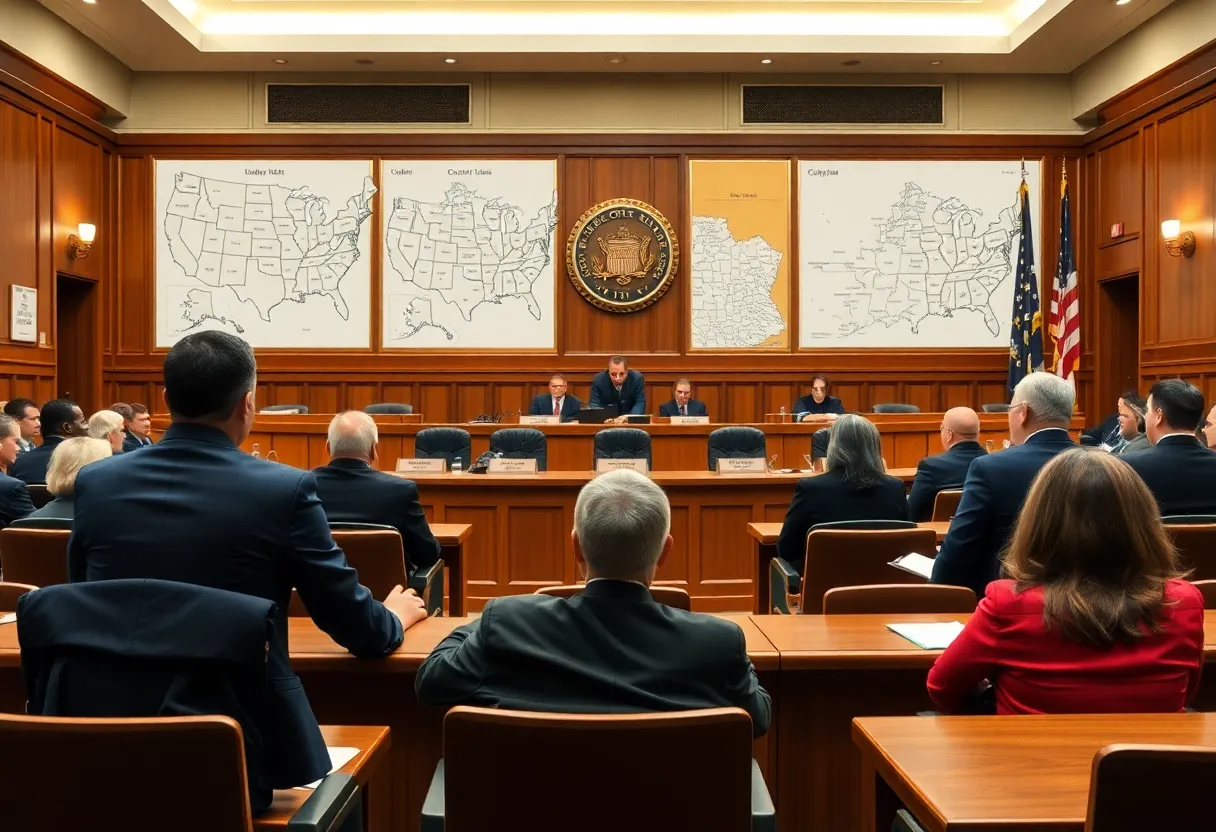News Summary
The Supreme Court is set to evaluate the constitutionality of Louisiana’s majority-Black congressional districts. With two out of six districts representing Black voters, Republicans are challenging the recent map, arguing it violates constitutional principles. This case could reshape political representation in Louisiana and influence national voting rights, as the court weighs the Voting Rights Act against the Equal Protection Clause ahead of upcoming midterm elections.
Supreme Court Takes on Louisiana’s Majority-Black Congressional Districts
In a move that’s sure to make waves, the Supreme Court has decided to scrutinize the constitutionality of drawing majority-Black congressional districts in Louisiana. This decision springs from a case that’s been buzzing since March 2025, and it aims to determine whether creating a second majority-minority congressional district in the state goes against the Fourteenth or Fifteenth Amendments of the U.S. Constitution.
What’s the Background?
Right now, Louisiana’s congressional map has two out of its six House seats crafted to represent majority-Black districts. However, this wasn’t always the case. For a time, only one such district existed, even though Black residents make up about a third of the population in Louisiana. This previous setup was hit with a court ruling, striking it down for breaching the Voting Rights Act (VRA).
Following that decision, the Republican-controlled legislature redrew the map, introducing two majority-Black districts. But hold on! This new arrangement is now being challenged by voters who do not identify as Black. Talk about a heated debate!
What is the Supreme Court saying?
By deferring their initial ruling and requesting a reargument, the justices are sending a clear signal that they want to dig deeper into the legal implications of these districts. Legal experts suggest that this might indicate an interest from the Court in further constraining the reach of the Voting Rights Act. The upcoming hearings are sure to weigh the balance between Section 2 of the VRA, aimed at protecting minority voting power, and the Equal Protection Clause of the 14th Amendment, which seeks to eliminate race-based discrimination in political representation.
The Legal Chess Game
What’s at stake? If the Court chooses to rule against the current congressional map, it could potentially allow Republicans to claim an additional congressional seat, as both existing majority-Black districts are currently held by Democrats. This would not only change the dynamics in Louisiana but could also tip the scales in the broader landscape of U.S. Congress, especially as the 2026 midterm elections loom closer.
Interestingly enough, the ongoing discussions about this case aren’t just confined to Louisiana. Its implications could set precedents for how other states across the country approach drawing their congressional districts in relation to race, making this a hot topic for voters and lawmakers alike.
Moving Forward
The Court has a history of being critical of the Voting Rights Act, having issued recent rulings that limit its scope. As the justices prepare for the next steps in this case, a spotlight remains on the interplay between legal principles and the reality of racial representation. With deadlines set for August 27 for appellants and October 3 for reply briefs, we’re all waiting with bated breath as the new term approaches in late 2025.
What Lies Ahead?
As the Court dives into these complex legal waters, the upcoming arguments are bound to shed light on the tensions between the VRA’s mission of protecting minority voters and the ideals of a “colorblind” Constitution. It’s clear that how the justices rule could have real effects—not only on the political map of Louisiana but potentially on voting rights and representation nationwide.
The challenge for lawmakers remains: how to navigate the tricky waters of complying with the Voting Rights Act while avoiding reliance on race in districting practices. With a lot on the line, this is one legal battle that will be watched closely by many.
Deeper Dive: News & Info About This Topic
- Politico: Supreme Court Takes on Louisiana’s Redistricting Case
- Wikipedia: Voting Rights Act
- CBS News: Supreme Court & Louisiana’s Redistricting Case
- Google Search: Louisiana redistricting case
- SCOTUSblog: Briefs Requested in Louisiana Redistricting Case
- Google Scholar: Louisiana redistricting Supreme Court
- NBC News: Stakes Raised in Louisiana Redistricting Case
- Encyclopedia Britannica: Redistricting

Author: STAFF HERE PHILADELPHIA WRITER
The PHILADELPHIA STAFF WRITER represents the experienced team at HEREPhiladelphia.com, your go-to source for actionable local news and information in Philadelphia, Philadelphia County, and beyond. Specializing in "news you can use," we cover essential topics like product reviews for personal and business needs, local business directories, politics, real estate trends, neighborhood insights, and state news affecting the area—with deep expertise drawn from years of dedicated reporting and strong community input, including local press releases and business updates. We deliver top reporting on high-value events such as Mummers Parade, Philadelphia Flower Show, and Thanksgiving Day Parade. Our coverage extends to key organizations like the Greater Philadelphia Chamber of Commerce and United Way of Greater Philadelphia, plus leading businesses in telecommunications, food services, and healthcare that power the local economy such as Comcast, Aramark, and Children's Hospital of Philadelphia. As part of the broader HERE network, we provide comprehensive, credible insights into Pennsylvania's dynamic landscape.





